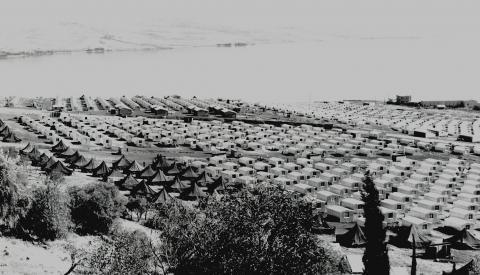Irit Katz
Year submitted: 2015
Supervised by: Prof Wendy Pullan
From their emergence in the 19th century to their current global proliferation, camps have been created extensively by and for different populations under the modern state order. Whether employed by national and colonial powers as instruments of control, or constructed ad hoc by displaced populations as makeshift spaces of refuge, camps are used as a versatile mechanism for the rearrangement of people in space. In Israel-Palestine, camps are part of the significant geopolitical changes related to the state-building project and to the mass displacement it caused, providing a core example of similar enterprises of territorial alternation and social engineering. While the Palestinian refugee camps are well recognised and studied, many other types of camps which have appeared in the region over the last century together form a distinctive spatial paradigm. Through its particular manifestations in Israel-Palestine, this dissertation examines the camp as a central mechanism by which modern societies and territories are administered, negotiated and reorganised.
The research focuses on two frontier camps in the Negev desert: the Jewish immigrant transit camp of Yeruham and the neighbouring unrecognised Bedouin settlement Rachme,from their creation in the 1950s up to the present. It analyses how the camp is used by actors from all sides of the political spectrum as an architectural mechanism, whether to facilitate national and territorial objectives or as a platform for its residents in their ongoing political struggles.
Agamben’s theory of the camp as a space of the modern political order is critically reassessed in this work, primarily through the examination and theoretical interpretation of empirical evidence of the camp’s complex role in Israel-Palestine. The identification, understanding and re-definition of the camp’s multifaceted spatial vocabulary allows light to be shed on this encompassing phenomenon which becomes increasingly relevant and urgent in today’s ongoing migration crisis.


